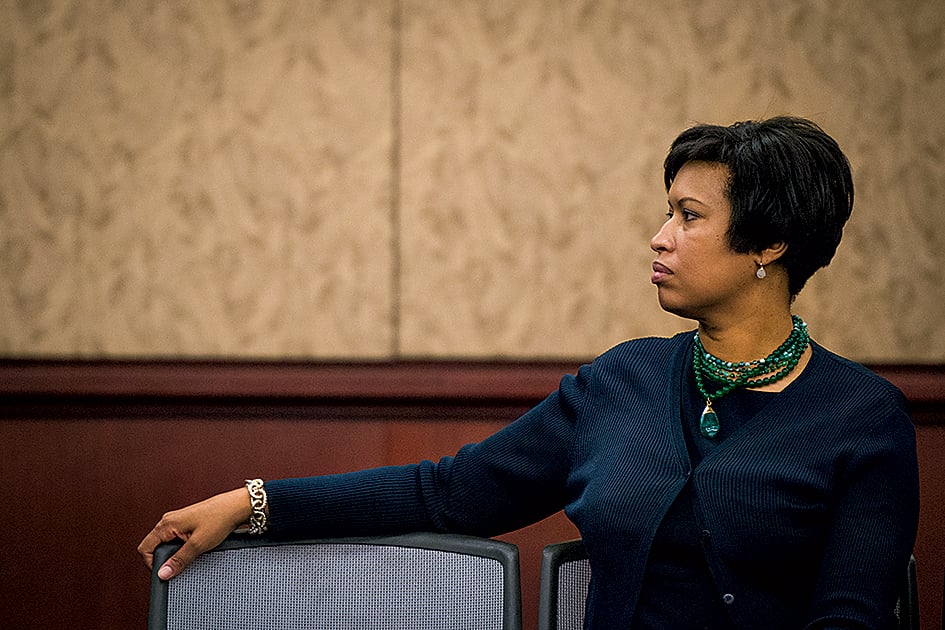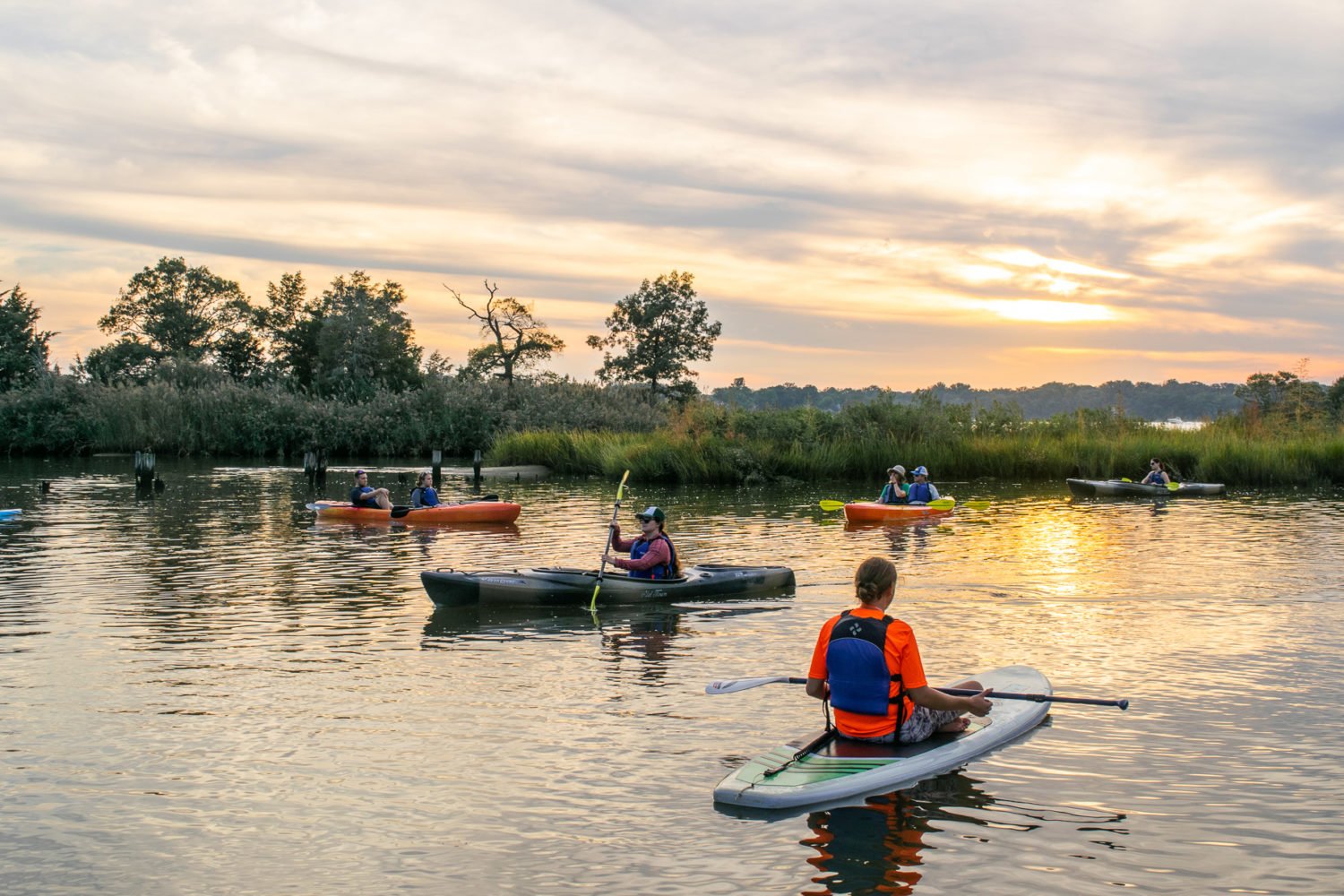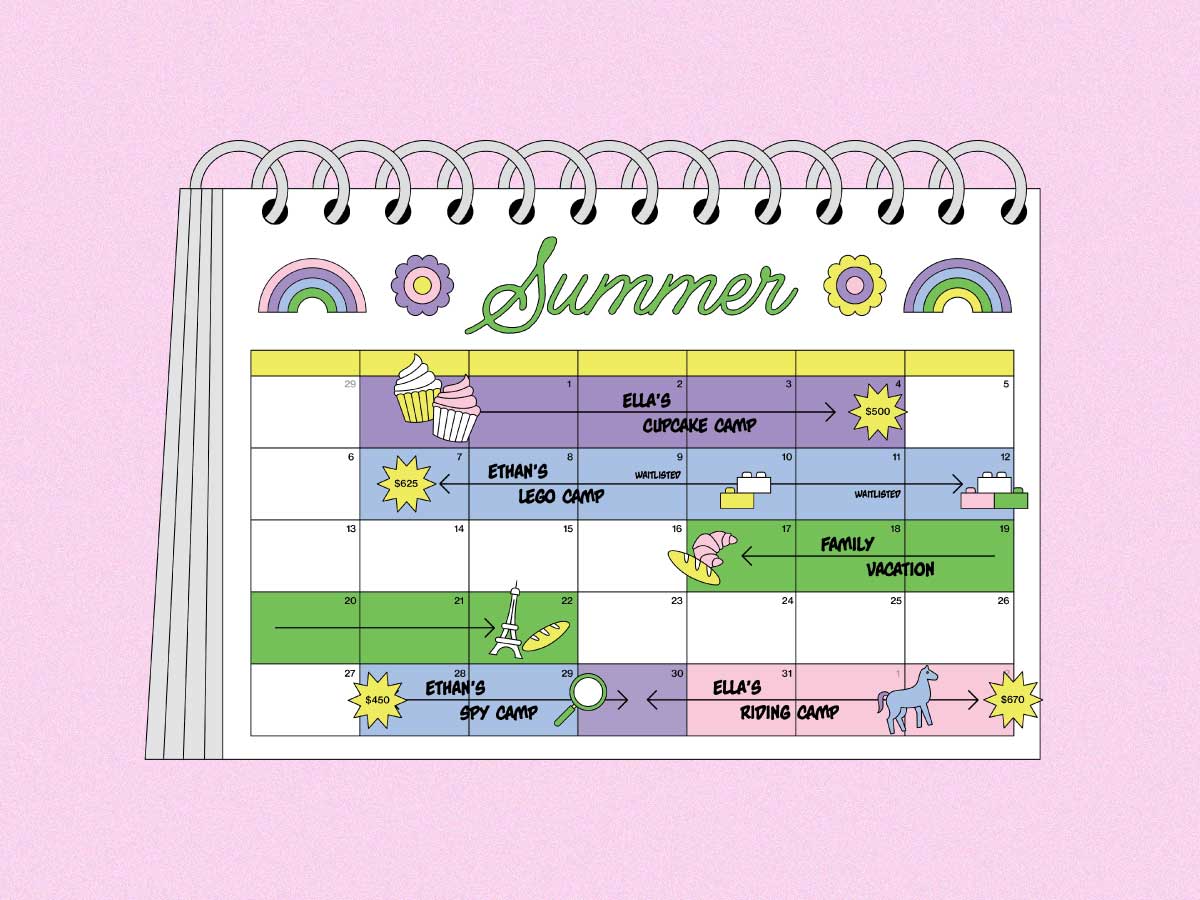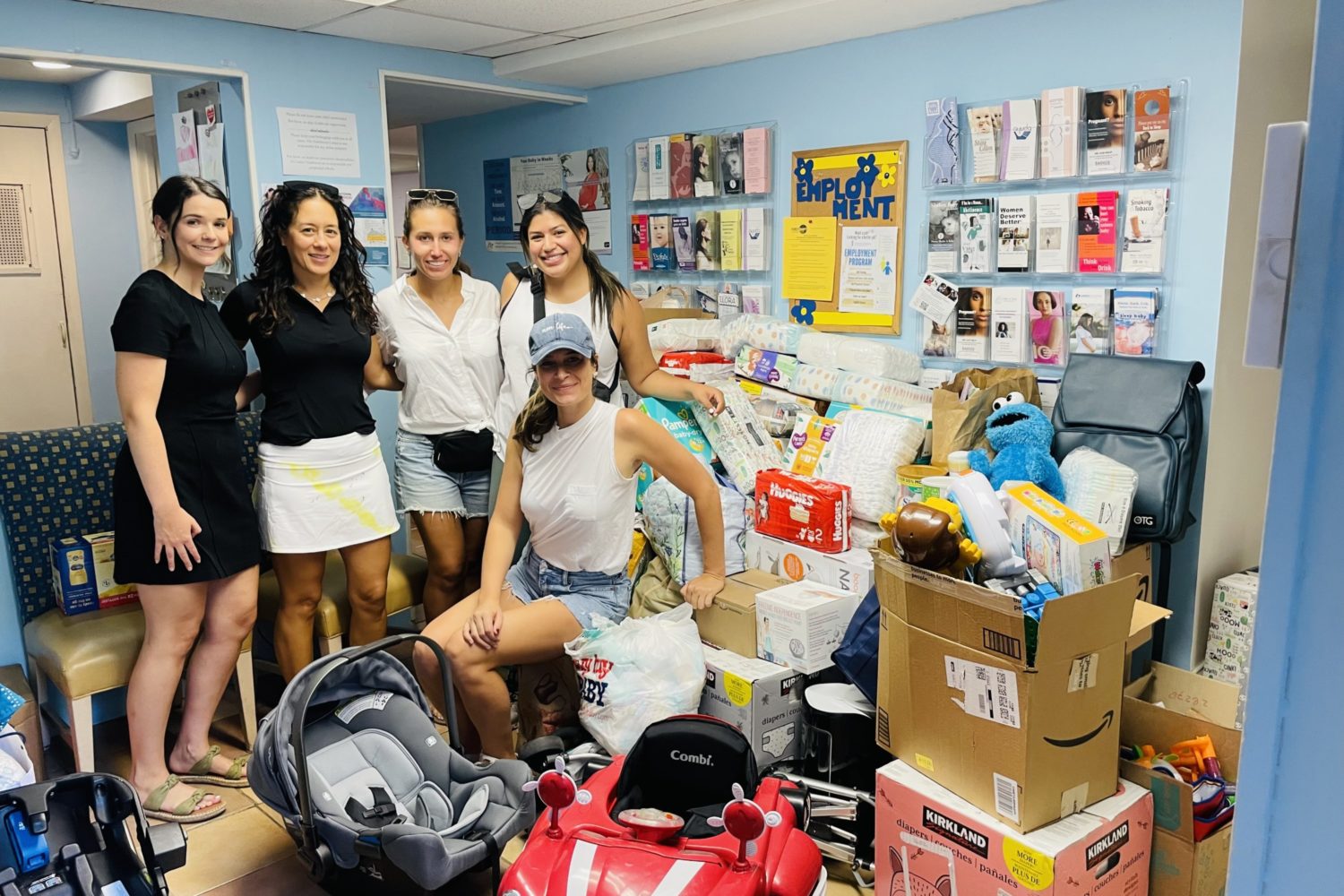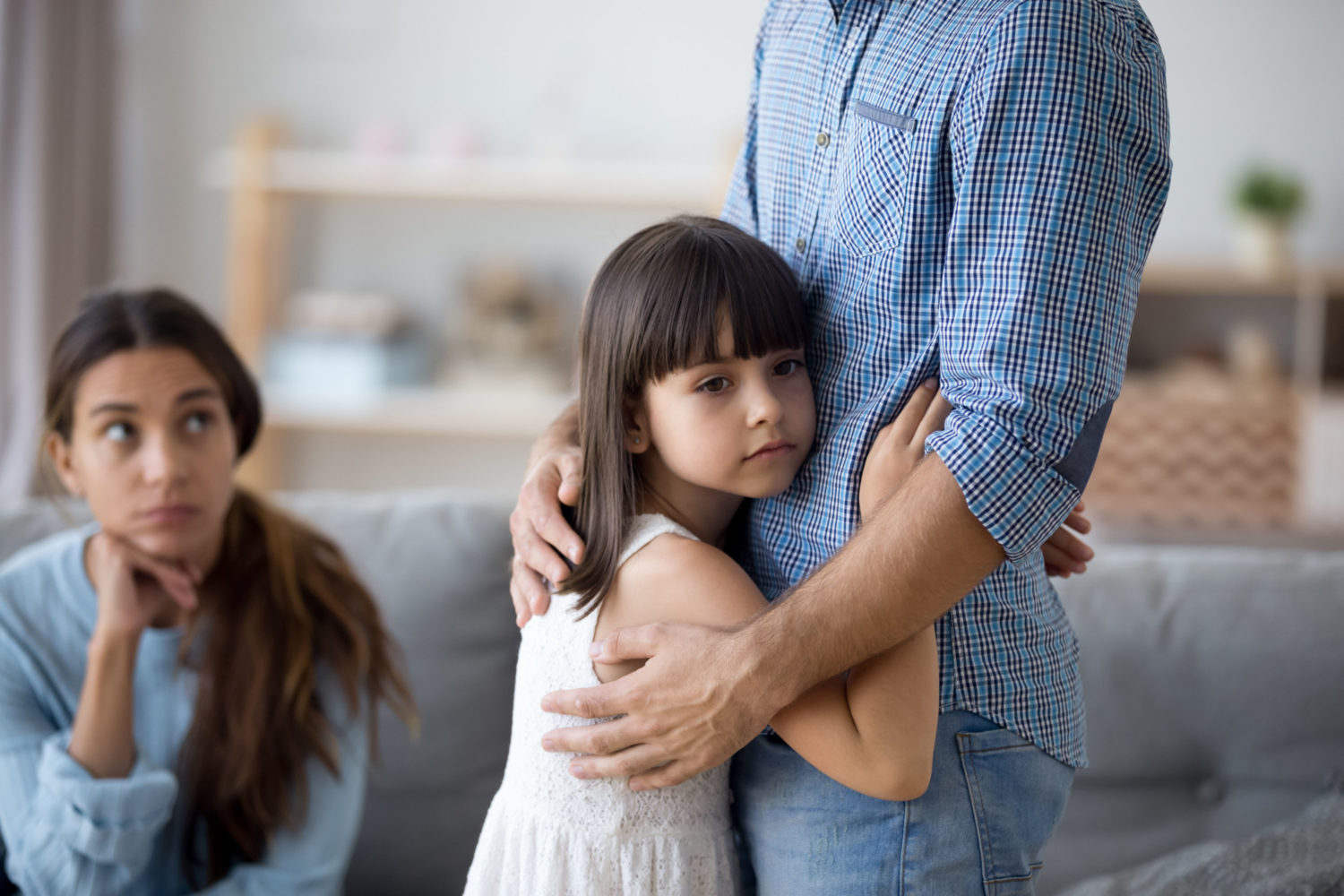#1 My kid won’t play sports. How do I keep him fit?

The rituals of many parents are tightly bound to sports, but Saturday-morning soccer games and swim team aren’t the right fit for all kids.
One option: individual pursuits such as rock-climbing, mountain-biking, or dance classes. And you can always schedule outdoor family activities like camping, hiking, or just walking in your neighborhood.
Another idea is martial arts, in which kids really just compete against themselves, says Nick Robison, an instructor at Black Belt Martial Arts Center in Kensington: “They’re striving to earn their next stripe, their next belt, learning the next technique. There can be competitions, but there’s all the intermediate milestones, and that works for kids regardless of their desire to compete.”
#2 My child is failing a class. What do I say to her teacher?
It can be tough to keep type-A tendencies in check, especially when it comes to rescuing your child. So this advice may be especially difficult for many Washington parents to hear: Say nothing, at least at first.
In high school and even middle school, this is a dialogue for student and teacher, not parent and teacher. “Your goal is not to fix the problem but to help your child fix the problem,” says Jessica Lahey, an educator and author of The Gift of Failure. If your son or daughter needs some encouragement, Lahey says, you can contact the teacher to say your child wants to meet privately. Then you can tell your child it’s up to her, and even offer to role-play for further support.
If your kid’s efforts don’t pay off, then you can get involved. Not one to relinquish control? Consider Lahey’s experience as a teacher: Her respect grows inordinately for parents who step back and for students who step forward. “My estimation of what those students are capable of goes way up,” she says.
#3 How to Fix or Leave Your Nanny Share
#4 I don’t feed my kids all-organic food. Am I a bad parent?

Don’t fret—too much. According to Kelly Dorfman, a nutritionist in North Potomac, it’s pretty much impossible to follow an entirely organic diet “unless you never eat out and live on Little House on the Prairie.” But you should try to eat organic whenever possible, she says.
Because organic food is costly, don’t feel bad about prioritizing. For produce, says Dorfman, “you should concentrate on the foods that have the highest concentration of spray, and the absolute highest is strawberries. They’re very porous, so anything you spray on them you can’t wash off.” Onions and avocados, by contrast, are “relatively low-spray.”
Even more important, she says, are certain animal products: “If you’re only going to eat one organic food, I would pick dairy products.”
#5 All my friends are sending their children to language-immersion programs, but I’m not sure I want that. Will my child’s future be ruined if she learns just English?

It depends on your kid, says Pamela Tedeschi, an educational consultant in Potomac. “Immersion programs are wonderful, and it’s easiest for kids to learn a language when they’re very young, but kids can still learn a language later,” she says. “This is not their only chance.”
For parents who choose immersion, Tedeschi recommends that they study the language alongside their children: “If the parents want their child to learn Chinese and they’re not fluent in it, they should take classes, too. Whatever language you choose, the whole family should be onboard with it.”
If you find another part of your child’s immersion program lacking, you can supplement it with enrichment elsewhere—math tutors or art classes, say. By the same token, if your kid isn’t in an immersion program, you can sign her up for a language program on Saturdays.
#6 My child’s friend’s parents are going through a divorce. What do I say, and what’s the best way to help?
First, what not to say: “I always knew your husband/wife was a jerk.” That’s not a form of support, says Glennon Gordon, a family therapist in Tenleytown. In most cases, it will only yield a defensive “Well, it wasn’t all his/her fault.” Other don’ts: “It’s best not to ask details,” Gordon says, and you should resist the temptation to problem-solve. “Your job is to listen and learn.”
So take a neutral stance. Ask your friend whether she’d like you to check in periodically or if she’d prefer to tell you when she needs support.
Finally, trust your instincts. Some people don’t reveal their private lives to even their inner circle, so try to be perceptive when chatting at the school picnic, to avoid making your friend uncomfortable. Gordon points out that people can discern when others truly care about their well-being and when they’re interest-ed for the sake of gossip.
#7 When should I let my kid sign up for Facebook? Should I friend him?

Megan Howard is an assistant English professor at Montgomery College who has a 12-year-old daughter and 16-year-old son. “We feel it’s important to introduce our kids to social media and teach them to navigate the online space,” Howard says. “That’s one of our jobs as parents now.”
She and her husband, Ben, have laid out strict rules for social media: “The kids are required to follow or friend us with all social-media accounts. We also require them to give us all of their passwords. Finally, we make it clear that we will occasionally check their phones and their social-media accounts. As long as we pay for the phones and the service, they must adhere to these rules. We will cut off their data and wi-fi if they don’t.”
But even with clearly defined parameters for social-media usage, Howard says, “this is honestly a really difficult area to navigate, and as the technology evolves, we find ourselves having to constantly reevaluate our positions.”
#8 A friend’s kid hit mine. How do I keep our relationship going?
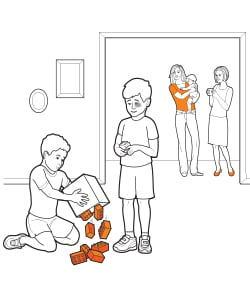
There are lots of variables that could make this situation simple—or not—to resolve, says counselor Janine Murphy-Neilson, the big one being whether you and your friend share a similar parenting philosophy. If you do, she suggests, “you and your friend can sit the kids down and talk about what happened and mediate their conversation,” especially if the kids involved are very young. As they get older, you should talk to your child one-on-one about what happened: “Help your child start to advocate for himself rather than coming in as a parent and solving the problem.”
The stickier scenario arises if the hitter’s parent isn’t on the same page as you. “If the other parent is unable to see it or hear it,” Murphy-Neilson says, “that creates a difficult situation because you feel like you have to say something to the child yourself”—which never goes over well.
The result may be that “you might not hang out as much because you don’t want your child in those vulnerable situations. And sometimes adult friendships absolutely do shift if you find someone else’s parenting style difficult to be around. Sometimes distance is the best or only answer.”
#9 We have only one child, but not by choice. How do I handle people’s nosy questions?
“You just have the one?” “You should have more!”
For the couple who has struggled with infertility, these seemingly innocent statements can dredge up heartbreak. Because it’s easy to be tongue-tied in the moment, Mia Joelsson, a psychotherapist specializing in reproductive health who also counsels at Shady Grove Fertility, recommends having an arsenal of responses ready.
Honesty can be a great way to shut down the conversation. Joelsson suggests something like “We’d love to have another child, but it hasn’t happened yet, and that’s all I’m comfortable saying about it right now.” Or you might say, “Yes, it’s something we’re working on, but it’s private.”
Another choice is to answer with a question. “When they ask when baby number two is coming, your response is ‘Why do you ask?’ ” says Joelsson. “Sometimes that embarrasses them enough to know it’s not an appropriate question.”

#10 At what age should I get my kids a smartphone?
Late elementary school, when children start doing activities away from home, is a good time to get them a phone, says Janine Murphy-Neilson, a licensed professional counselor in Fairfax. But a smartphone is a different story: “If you can hold off till high school, that would be very good.”
More important than when kids get the smartphone, she believes, is what happens afterward. “Parents should have no shame about setting some limits,” says Murphy-Neilson, the mother of two teenagers. “The more you set expectations going in, the better shape you’ll be in.”
Parents should make use of services like Net Nanny, which lets them block certain sites; keep tabs on kids’ phone use; and set guidelines. “I told my kids that I’d do spot checks—meaning I’ll go through their phone to make sure that they didn’t send any texts after 10 o’clock,” Murphy-Neilson says. “A lot of this stuff is about building trust with your kids. They want to feel independent and that you can trust them—but they also need to know that it’s not a blind trust.”
#11 My kid stares at the sky while the other kids play soccer. Do I yell at him to get in the game?
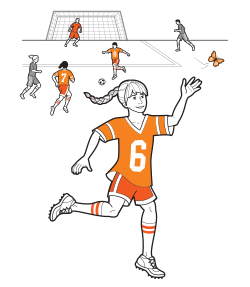
Deep down, every parent knows not to be “that guy”—it’s almost always a dude—at a child’s sporting event. You know, the dad who coaches up his kid from the sideline, who barks all sorts of orders from the bleachers, who lets the umps know that their eyesight is failing and likely not covered by Obamacare, especially after they get socked in the socket by Angry Ref Dad.
But what if your sweetie is standing out in right field picking daisies while a left-handed batter enters in the box in the bottom of the ninth, or your darling goalie is scraping her name into the dirt in front of the net as her teammates scrap for the tying score at the other end of the pitch? Should you pipe up?
“The older they get, the more justifiable it is to remind them that they need to be helping out their team,” says Andrea Bonior, author of The Friendship Fix and an adjunct psychology professor at Georgetown. “Be gentle, though, and leave the actual coaching to the coaches.”
#12 My friend is the PTA president, but I have no interest in getting involved at school. How can I get out of it while staying friends with her?

Wendy Cumberland, PTA president at Chesterbrook Elementary in McLean and a former head of the Junior League of Washington, says she has no expectation for friends to get involved. She knows people contribute to their communities in different ways—some coach soccer, some have served in the past, others show support with their wallet. In fact, Cumberland finds it “helpful to have friends who are not wrapped up in the politics of whatever it is. It’s valuable to have some friends who aren’t in the trenches with you. You can rant, and you know it’s safe.”
That said, if things get awkward, let her know where you stand, says Tammy Gold, a family therapist and the author of Secrets of the Nanny Whisperer: “I admire how much time you’re able to give to the school. I want to support you, I really do, so if there’s one hour I can give or one event I can help with, I will absolutely try, but I can’t commit to ten hours on the PTA.”
Cumberland adds that when she requests volunteers, it’s “a genuine ask. . . . I always try to make space for the gracious exit.” She much prefers volunteers who are truly invested in their project, because “volunteers who are guilted into anything don’t serve anyone very well.”
#13 At my daughter’s birthday party, do I need to accommodate kids who have allergies? How should I do it?
The short answer: no. Parents of children with food allergies usually prefer to control their child’s diet themselves. There’s too much room for error.
“Obviously if there’s a severe allergic reaction caused by breathing the item in, then you need to accommodate,” says etiquette expert Lizzie Post of the Emily Post Institute. She also notes you may want to make special concessions if it’s a very intimate gathering with only a couple of children.
While there’s no expectation for you to accommodate a child’s allergy at larger parties, it’s still nice to make the offer: “We’re serving pizza at Emily’s party. I know Sophie is allergic to milk. Can I give her a slice of cheese-free pizza?” Undoubtedly, the parents will appreciate your effort, but they’ll probably still offer to bring their own preapproved slice.
#14 Now that pot is legal in DC, should I smoke in front of my kids?
#15 How can I get my kid to listen to cool music?

“It’s pretty easy, really: Listen to cool stuff yourself,” says Mike Schulman, founder of legendary Slumberland Records, which formed in the Washington area in 1989. While Schulman’s label leans heavily toward indie-rock groups, he plays everything from jazz and punk to R&B and electronica for his six-year-old son, Theo.
Kids like melodic songs they can latch onto easily, which is why Kidz Bop is so unavoidable. But with all due respect to kid-rock superstar Dan Zanes, li’l people don’t always respond to wacky lyrics. That’s why you, as a cool parent, might be able to get away with just playing smart-but-accessible records from your hipper years—say, Miles Davis’s Kind of Blue or a compilation like Ramones Mania—without having to put a single Laurie Berkner MP3 on your phone. And while there may be debate on whether They Might Be Giants in their adult guise are cool, there’s no denying the genius of the group’s records about letters, numbers, and science.
Of course, playing jam after nerd-approved jam won’t ensure that your kid will choose, say, the Slumberland band the Proper Ornaments over the Wiggles. But that’s why science created earplugs—so you can go on loving your wonderful, taste-compromised child.
#16 What’s the deal with teacher gifts? Do I need to get one at the holidays, at the end of the year, and for Teacher Appreciation Week?

Presents are more common in December and June. Teacher Appreciation Week (the first week of May) tends to be more about PTA-sponsored gestures of love, such as a staff luncheon or a coupon for getting out of recess duty.
In terms of what to give, some counties, including Montgomery and Arlington, have made it easier for parents in public schools: Families can spend only $100 on gifts per teacher per year, and in Montgomery County, no individual gift can cost more than $20.
If your child attends a private school, don’t stress. A teacher at one of Washington’s most elite schools says she’s “received pretty normal things like homemade cookies, chocolate, knickknacky teacher-desk items, books, and gift cards.” While she has seen Lululemon gift boxes and heard the lore of extravagant gifts such as a weekend getaway to the Inn at Little Washington, she notes: “Personally, I wouldn’t want something over the top—I’d wonder about the intention there.” A heartfelt note is always treasured.
#17 Should I take up a spot at our popular (and borderline overcrowded) public school when I can easily afford private?
We took this concern to former New York Times Magazine ethicist Chuck Klosterman, who dismissed it out of hand. “The public school system is not a charity,” he says. Public schools are “consciously designed for everybody, even if that goal is rarely realized. As a taxpayer, this is a utility you have paid for. If you see a specific (tangible or intangible) benefit to the public-school experience that you classify as preferable to the private-school experience, that is where you should send your kid. Moreover, if you particularly value the concept of public schooling, the best way to support that concept would be to place a productive, competitive student into that environment.”
#18 How much screen time is too much?
Screens dominate our lives, from the living room to the minivan to the smartphone you hand off your kid at a restaurant to keep him quiet as you and your spouse try to finish your meals. But is it too much?
It’s good to be aware of how often children use screens, says Andrea Bonior, author of The Friendship Fix. But more important is “whether they’ve become the default way of entertaining themselves when they are the least bit bored, antsy, or unscheduled. Do your kids grab their iPad or flick on the TV the moment they come home from school? Can they not wait at a restaurant without playing a video game?”
Screen time also has to be measured in the context of your kids’ generation. If your child reads a book for two hours straight, you probably won’t worry about her brain turning to mush. But she may simply prefer to read on a plastic device with a battery and a bright screen.
#19 Do I have to apologize to neighbors because my baby cries so much as we sleep-train her?

Definitely not, says Annika Brindley, a sleep consultant in Northwest DC, but you should communicate with them before the fact, especially if you live in a rowhouse or a condo with shared walls.
“I always recommend that people take the most straightforward, honest, and truthful approach,” she says. “And remember—a Georgetown Cupcake and a nice note will get you far.”
Leave a note or knock on their door before you begin training. “You need to give your neighbors a time frame,” says Brindley. “It’s much better than endless nights of not getting anywhere by not sleep-training. Then they really won’t like you.”
#20 How can I send my kids to the playground without getting arrested?

Despite the recent experience of the “free range” parents in Silver Spring, neither Maryland, DC, nor Virginia has a specific age cutoff for solo excursions. As a recent press release issued by the state’s Department of Human Resources puts it, “Maryland law makes it a crime to leave children under the age of 8 confined in a dwelling, building, enclosure, or motor vehicle without a responsible person of at least 13 to supervise.” This same age bracket—8 to 13—provides a benchmark for solo trips to the park, says David Nitkin, the Maryland attorney general’s director of communications, though the state acknowledges that “age alone is not the dispositive factor.”
Virginia doesn’t have a statewide ordinance with an age cutoff: “Many circumstances are subjective,” says Alexandria police spokesperson Crystal Nosal, “and the total conditions would have to be looked at to give an opinion—the safety of the children, if they have emergency plans, if they were put into an unsafe situation where one was injured, how the children felt about being on their own.”
While DC considers anyone under the age of 18 a child, the law is silent about specific ages for “free range” outings and relies on parents’ judgment.
But how to hone that judgment? By knowing your children—and teaching them self-reliance one step at a time, says Emory Luce Baldwin, a family therapist in Takoma Park. “Parents have a pretty good sense of their own child and what their child can handle,” she says, and they should nudge the youngster to the next level: “You start with wherever your child is and take it one step further—what will make you and your child a little bit nervous.”
Every question about parenting comes down to one haunting question: Am I a good person? In the past, the answer was easy: You’re doing the best you can. But nowadays no parents can rely on grit and determination alone to know, say, when they should get their darling precious angel a smartphone or if they’re irrevocably screwing up their kids’ futures by keeping them out of a language-immersion program. Which is why we’ve consulted a small army of behaviorists, therapists, and—in one case—an indie record executive to answer some of the no-longer-obvious conundrums that confront parents today. Because as any type-A Washington mom or dad will tell you, while you may be doing the best you can, you can always do better. Herewith, our guide to parenting in 2015.
You can prepare your children for unchaperoned park excursions, Baldwin says. First, make sure your kid knows how to cross a quiet street by himself—with you right next to him. Work up to a busier street, all while teaching safety skills: “Does he know how to reach his parents or neighbors or friends?” she asks. “Does he know how to call 911, how to give his name and address, how to pick out the right person in a crowd to help, how to say no without sounding wimpy?” Only when the parent can confidently answer yes to all of the above and more should longer trips out be contemplated.
This article appears in our August 2015 issue of Washingtonian.
Illustrations by Kate Francis.


